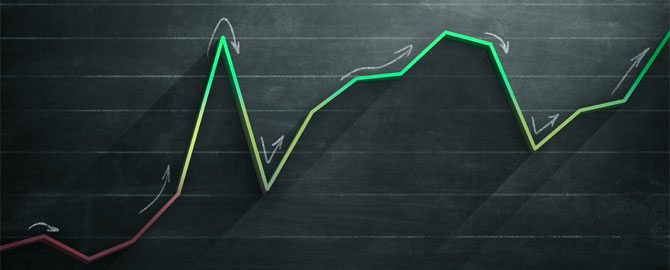
In our 2011 year end newsletter, we focused on the unfolding Greek tragedy that now appears to be in its final act. At the time, we highlighted the fact that excesses eventually find equilibrium and that ‘change’ ironically is the constant in the financial world.
In addition to the Greek drama, the growth of the Chinese economy appears to be slowing from the breakneck speed of the past few decades. This is having a ripple effect on commodities such as copper, iron ore and oil as well as financial markets as the Chinese central bank attempts to engineer a soft landing through excessive monetary policy.
Uncertainty
These and other events, most importantly, the ongoing debate concerning when the Fed will begin raising interest rates, have created a continuous stream of uncertainty over the past several years. The result of these reservations about capital markets and anxieties with the future has been a strong rise in stock markets and a moderate return in bond markets. As usual, the correlation between the tenor of the news flow and returns on capital markets has been low.
|
Forward Price/Earnings |
Price/Book Value |
Dividend Yield |
|
|
United States |
16.8 |
2.8 |
2.0% |
|
International Developed Markets |
15.2 |
1.7 |
3.1 |
|
Emerging Markets |
11.8 |
1.5 |
2.7 |
With regard to valuations and whether markets are currently an attractive investment, we have inserted the table above. At 16.8 times forward earnings and 2.8 times book value, the US is moderately overvalued but within its historic range. Developed international markets are moderately undervalued having underperformed the US over the past several years as they have addressed structural issues related to the financial crisis. Emerging markets are currently attractive on an absolute basis but fully valued relative to their historic valuations. In addition, value type investments have significantly underperformed growth investments over the last three and five year periods leaving them relatively attractive.
Looking Forward
As we look forward, we see the Fed’s unwinding of its policy of easy money as possibly the most significant event over the next twelve months. Similar to the entire post crisis period, this change in Fed policy is without precedent. Historically, the Fed has adjusted policy to effect change in the economy; tightening to slow growth or dampen inflationary pressures and loosening to encourage growth and fight disinflation. This time around they will be raising rates to normalize interest rates in the face of moderate growth and inflation. As a result, it may have a negative effect on markets or it may be a non-event. To be sure, there will be more uncertainty. As always, the markets’ response will be nearly impossible to predict. As always, the best approach to this type of uncertainty is to have a well-diversified portfolio so as to capture the returns where ever they come from.
[hr]

